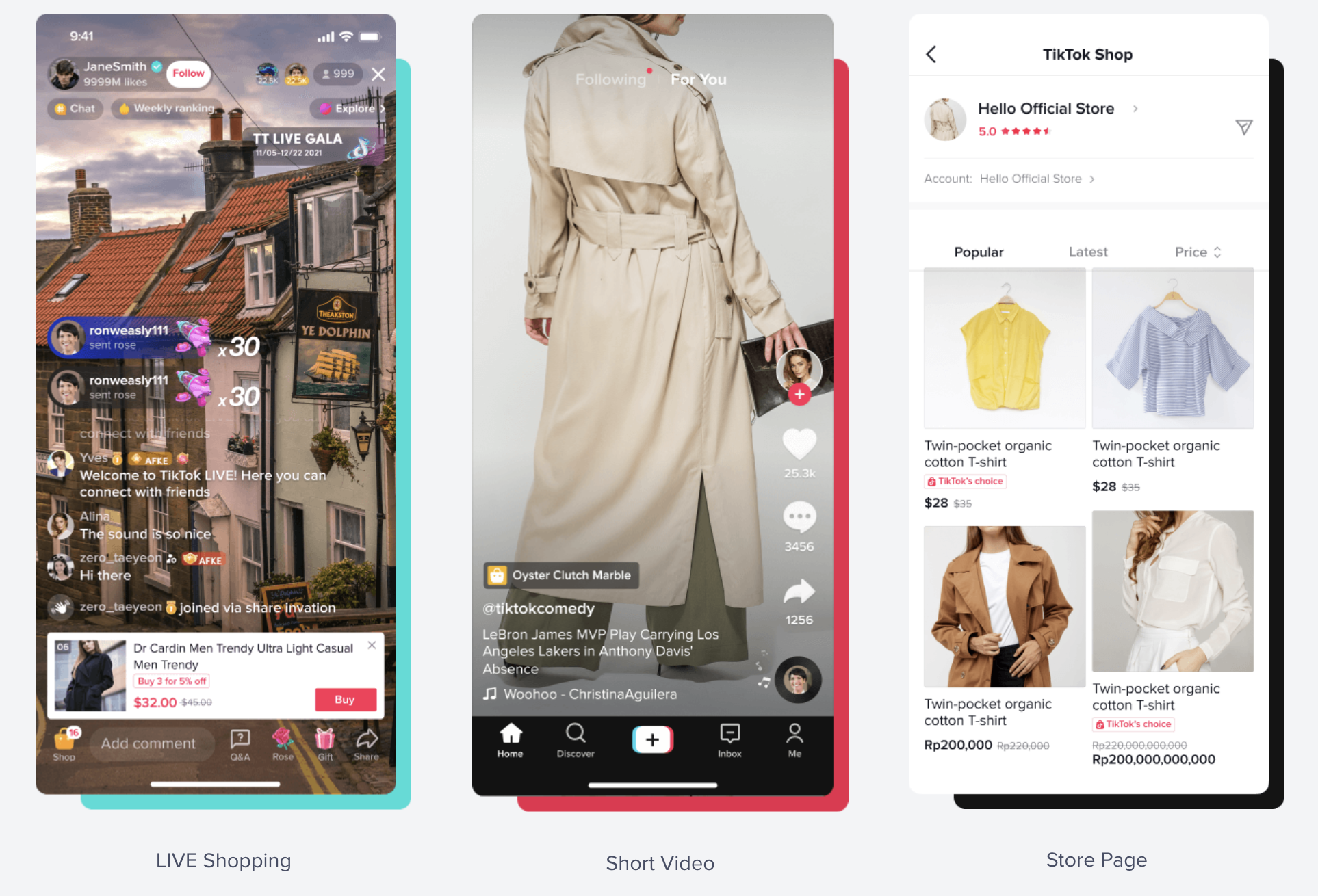Protecting student privacy in the age of TikTok Shop
With 85% of Gen Z influenced to buy from what they see online, it’s never been more important to empower students to make high-character decisions online, especially when it comes to online shopping.
TikTok Shop, an e-commerce solution integrated within TikTok, is changing the way that students shop online. Discover how students are navigating this new shop and how educators can empower them to navigate it in positive ways.
The rise of online shopping and its impact on student privacy
TikTok Shop has opened a new chapter in the world of online shopping. This integrated marketplace allows users to seamlessly transition from watching entertaining short videos to browsing and purchasing a wide array of products. However, beneath the convenience and excitement lie concerns related to student privacy, such as theft of user data, product scams, and misuse of financial and personal information.
TikTok Shop emphasizes low prices, highlighted in large fonts, along with coupons and free shipping offers to create a sense of urgency. However, a lack of brand names on the product images makes it challenging for students to differentiate genuine items from potentially fake ones.

So how does TikTok Shop work? Students can click into the shop through a product listing on their feeds. Students then see a section dedicated to “Today’s Deals.” One of the featured products, for example, might be a snail mucin-based face serum, specifically the COSRX-brand Advanced Snail 96 Mucin Power Essence. However, the listed price of $7.99 (down from $39) doesn’t match the $25 price tag on COSRX’s official website. The discrepancy extends to the product’s origin, with the TikTok seller claiming it’s made in China, while COSRX products state they are made in Korea.
While TikTok’s venture into e-commerce is a new and convenient way for students to shop, concerns about product authenticity, pricing accuracy, and brand transparency need attention. To avoid fake product scams or personal information breaches, students should exercise caution and thoroughly research products and companies before making purchases in this evolving shopping landscape.
The Algorithm
The very essence of TikTok’s algorithm, which thrives on tracking consumers’ actions on the platform to create a personalized page for them to view content raises questions about how much user data is being collected and utilized within TikTok Shop.
The shop works similarly to how normal TikTok content works: the platform tracks your likes, comments, and activity on pages and content. TikTok’s algorithm will then analyze what content you like the most and then push customized advertisements to your feed. These ads contain videos of individuals trying the products and pop-ups promising discounts for the products in the video. Since TikTok’s marketing strategy relies heavily on delivering personalized content to every individual, students should consider how much data TikTok is collecting on them and how that data is then utilized and protected.
According to Fortune, TikTok has been scrutinized by all levels of the U.S. government for its data privacy practices. There are national security concerns over whether user data can be tracked or influenced on the app, due to the app’s international ownership. As a result, schools and universities across the country have implemented TikTok bans on campus WiFi networks and school-owned devices.
TSI’s Take
With TikTok Shops growing across the nation and becoming a significant part of the social media platform, it’s important that students and educators are aware of how the shop works, how to avoid scams, and ways to protect their privacy.
At The Social Institute, we help students protect their privacy like they’re famous by encouraging them to stay in control of their personal information and put their guard up when it comes to hackers and scammers.
Empower your students to stay safe when shopping online with these three tips:
- Use a protected form of payment: If possible, and with parents’ permission, use a credit card instead of a debit card because credit cards typically have easy ways to report fraud if you do end up buying a fraudulent product.
- Create hacker-proof passwords: Avoid using personal information and include a mix of numbers, symbols, and upper and lowercase letters to create hacker-proof passwords
- Stick with reputable websites you already use: When in doubt, stick to reputable websites and brands that you’re already familiar with!
Interested in learning more ways to protect student privacy and data? Examine the laws and guidelines for schools to follow in order to protect student privacy in our school playbook.
Always stay up-to-date with the latest and greatest trends online by subscribing to our newsletter where we talk about trending tech and social media news weekly! In the meantime, check out our Instagram and TikTok @thesocialinst for tips, trends, and highlights when it comes to social media.
The Social Institute (TSI) is the leader in empowering students by understanding students. Through #WinAtSocial, our gamified, peer-to-peer learning platform, we equip students, educators, and families to navigate their social world – in the classroom and beyond, online and offline – in healthy, high-character ways. Our unique, student-respected approach empowers and equips, rather than scares and restricts. We incorporate timely topics about social media, tech use, and current events that are impacting student well-being and learning. #WinAtSocial Lessons teach life skills for the modern day, capture student voice, and provide school leaders with actionable insights. Through these insights, students play an essential role in school efforts to support their own health, happiness, and future success as we enable high-impact teaching, meaningful family conversations, and a healthy school culture.
